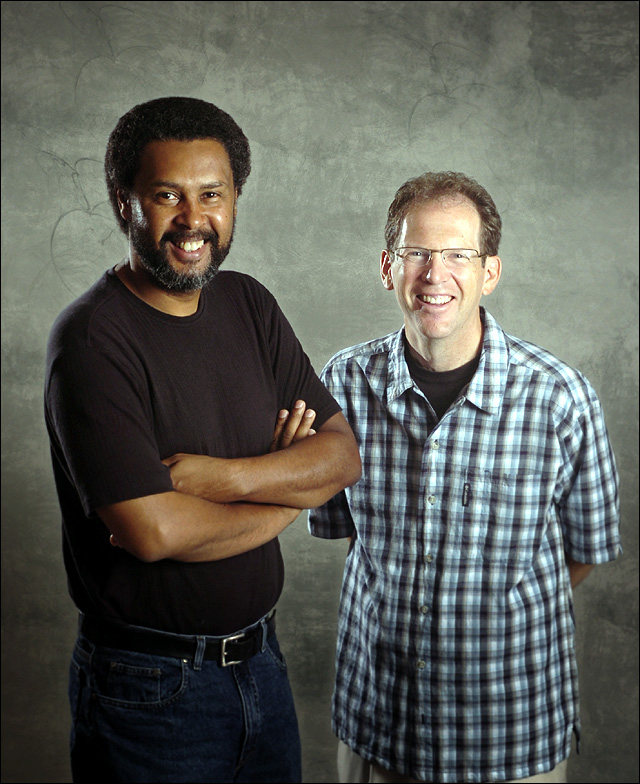New Willmott movie will infiltrate ‘Bunker Hill’
When dabbling with standup comedy in college, Kevin Willmott spent a lot of time roving Interstate 70 en route to gigs in rural Kansas. He recalls how one place about 180 miles west of Lawrence particularly caught his eye.
“I’ve always been interested in this little town called Bunker Hill, Kansas. I’ve always liked the name,” Willmott says.
The Lawrence filmmaker liked it so much that he selected it as the title of his latest feature, which also is set in the isolated prairie community.
“What happens in this little Kansas town when you lose total communication with the outside world?” Willmott recounts the impetus for the plot. “No one’s on the highway. No planes are in the air. Your car won’t work. What do you do? What happens is you kind of revert back to the old ways.”
Willmott, an associate professor of theater and film at Kansas University, has chosen “Bunker Hill” as his follow-up to “C.S.A.: The Confederate States of America.” (That mock documentary was bought at the Sundance Film Festival and released internationally by IFC Films.)
Together with writing partner Greg Hurd, the pair have concocted a tale about how residents of the town react to an apparent terrorist attack against America.
The film begins shooting Aug. 14. The first location will be Lawrence, followed by a monthlong production that visits places such as Nortonville, Coffeyville, Sedan and, of course, Bunker Hill.

Filmmaker Kevin Willmott, left, has teamed with screenwriter Greg Hurd for an upcoming movie, Bunker
Hurd says, “I view Kansas as a place where you can let ideas and ideologies come to a boiling point. Kansas has a history of that in the United States.”
Hurd (an employee of Free State Studios, which is owned by The World Company) had previously collaborated with Willmott on an unproduced screenplay about a jazz musician called “A Love Supreme.” Willmott approached his longtime friend with the idea for “Bunker Hill” because Hurd also is a minister and the movie is rife with religious themes.
“Kansas is really where philosophies collide. They get to explode sometimes,” says Hurd, who describes the film as a post-modern western.
Survival of the fittest
While there are many movies that have dealt with what happens to individuals when the rules of society erode – “The Road Warrior,” “The Trigger Effect,” “Dawn of the Dead” – the filmmakers believe their concept is particularly compelling because of its moral implications.
“It’s kind of in the post-apocalyptic genre,” Willmott says. “But I didn’t want to do anything like ‘Road Warrior,’ with people in weird haircuts, driving weird cars.
“The natural conclusion to me in a post-apocalyptic world is we would all become Amish. Computer use, getting online to find out what is going on – that would be gone. … In many ways the survivalist guys become the leaders. Really the question becomes, where does democracy fit into this?”
Fitting in has always been an issue for Willmott’s creative visions.
The controversial “C.S.A” speculated what the United States would be like if the South had won the Civil War and slavery were still legal. Although it earned widespread release from a respected studio, the writer-director didn’t feel like conspiring with Hollywood on “Bunker Hill.”
“We’ve not had much luck with finding people (in the industry) who get it. I don’t have a lot of time to wait for them to figure it out. You can spend 10 years trying to find money in Hollywood or spend two years looking for money on your own,” he says.
As with his previous effort, Willmott won’t reveal the budget other than to half-jokingly say, “It’s under $1 million.”
Filmmaking state
Willmott is still casting some key roles. Already the filmmaker has recruited established character actors to star in the project, such as James McDaniel (TV’s “NYPD Blue”), Saeed Jaffrey (“Gandhi,” ‘The Man Who Would Be King”) and Blake Robbins (TV’s “Oz”). Other cast members with local ties include Laura Kirk (star of “Lisa Picard is Famous”) and singer Kelley Hunt.
Despite only planning on shooting one day in Lawrence, Willmott stresses that the crew will be composed of many former and current KU students.
“Our money comes from Lawrence – our investor group,” he adds. “It’s very much a Lawrence film.”
Willmott and Hurd emphasize the role filmmaking has in the state, but explain that for the cinematic culture to grow it is becoming increasingly more important for locals to take the initiative.
“It’s hard for movies to come to Kansas anymore because we’re competing with Australia and Canada,” Willmott says. “So we’re going to have to produce these movies on our own and use the things that we know are great about Kansas.”



